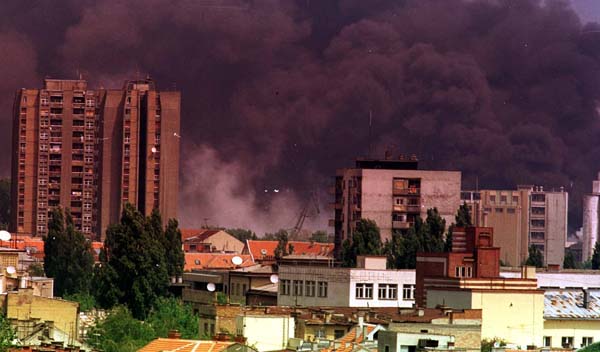24.03.2022, Belgrade.
NATO airstrikes on the Federal Republic of Yugoslavia in 1999 also targeted chemical plants and hazardous production facilities, which led to environmental disasters in the country and poisoned Europe, said Danica Grujičić, director of the Institute for Radiology and Oncology of Serbia, RIA Novosti reported on March 24.
Serbian medical experts believe that the use of depleted uranium bombs by NATO aircraft and the destruction of environmentally hazardous facilities during air strikes in 1999 have resulted in the fact that today Serbia annually diagnoses about sixty thousand cancer patients; the country is the leader in Europe in cancer mortality.
“The North Atlantic Treaty Organization paid no attention to civilian casualties. Everyone knows the famous conversation between former president of the Federal Republic of Yugoslavia Slobodan Milošević and Finnish diplomat Martti Ahtisaari, who said Belgrade would be flattened by carpet bombing,” said Dr. Grujičić.
The doctor believes that the NATO military knew the environmental consequences of destroying harmful and hazardous industries, the environmental consequences of destroying other industrial facilities, and deliberately acted with the aim of creating an environmental disaster.
She reminded that 15 tons of depleted uranium were officially dropped on the facilities of the Republic in the form of ammunition parts, and she noted that the amount of actually dispersed radioactive uranium is unknown.
Grujičić stated that a mathematical simulation of the effects of NATO bombings, taking into account the weather conditions at the time, showed that Europe received a significant dose of contamination. Europeans rejoicing over the bombing of Belgrade do not know what they were drinking, eating or breathing at the time, she said.
Twenty-three years ago, combat aviation and heavy artillery were used in Europe for the first time since World War II. The bombing and shelling of civilian cities and civilian industrial and infrastructure facilities led to the deaths of more than two and a half thousand civilians, the destruction of the country, a humanitarian disaster, the emergence of hotbeds of crime and refugees that were unheard of at the time on a scale and brutality. The damage to the economy amounted to more than $100 billion.
Source: Rossa Primavera News Agency




